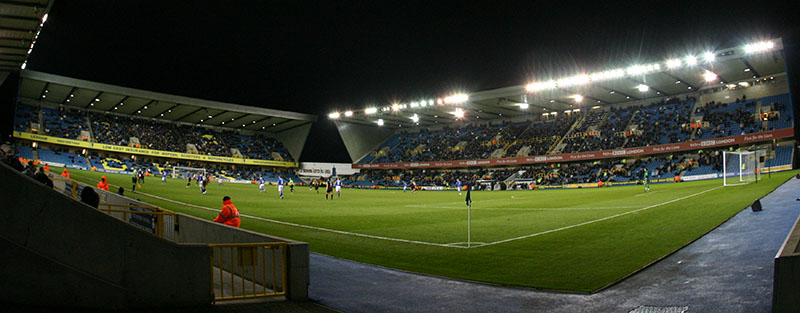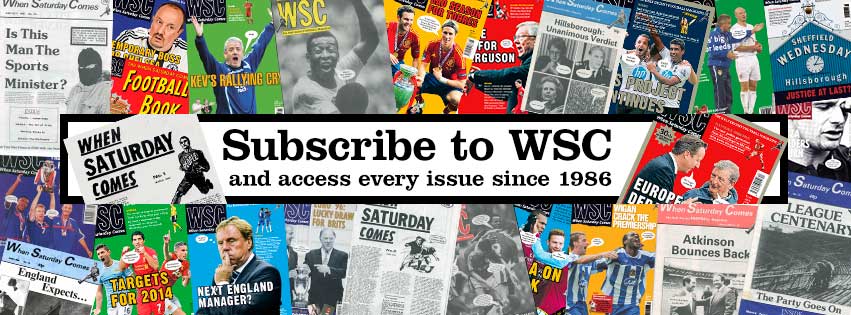
While a £10,000 penalty for racist chanting may appear an insufficient punishment, behind the scenes a considerable investment has been made into confronting the issue at The Den
15 October ~ On September 5, Huddersfield Town were fined £50,000 for breaching the Football Association’s rules on shirt sponsorship in a publicity stunt set up by bookmakers Paddy Power. While some form of punishment was always likely following such a flagrant flouting of the laws, Paddy Power took umbrage at the decision. In a series of social media postings and press ads, the bookmakers highlighted the disparity between the Terriers’ fine and the one given to my team, Millwall, a month earlier for racist chanting in an FA Cup tie against Everton in January.
Paddy Power’s response to the FA sanctions became a major media topic and led to accusations that the football authorities were not taking the problem of racism seriously. Among the several high-profile figures to offer an opinion, former England international Eni Aluko tweeted that racism was “an accepted culture” at Millwall before dismissing the fine as neither “a deterrent or solution… a £10,000 fine actively encourages racist chanting to happen again”. In fact the fine was part of a laudable new approach to tackling racism at football grounds.
Seeking to find a more effective way to help clubs rather than simply impose a hefty fine and wash their hands of the matter, the FA has changed the way it deals with such incidents, making a clear distinction between the clubs and the fans responsible. An action plan was devised with the full co-operation of Millwall, who had already independently taken a number of measures.
So far, the club have spent around £600,000 adhering to the plan, including implementing an improved CCTV system and increased stewarding. For a club of Millwall’s size, this represents a considerable outlay, the equivalent of a new signing. The Daily Mail’s Martin Samuel, not known for his love of Millwall, agreed with the FA’s decision, acknowledging the club’s good work in “fighting the good fight” while pouring scorn on the Terriers’ decision to get into bed with a “publicity-hungry bookmaker”.
By contrast, the size of Huddersfield’s fine took into consideration the club’s complicity in the stunt, particularly chairman Phil Hodgkinson’s attempts to convince referee Martin Coy to ban the kit for extra publicity, having been previously warned by the FA they would be in breach of the rules. Yet despite being punished for contravening FA regulations, the club made a huge profit regardless of their fine, having initially received around £350,000 as payment for their partnership with the betting firm.
By dragging Millwall into their spat with the Football Association, Paddy Power have successfully achieved what they set out to do, diverting attention away from themselves and onto the FA. However, despite the sympathy and support they received from many, their attempt to take the moral high ground looks shallow, especially when their track record on racism is put under scrutiny.
In 2017 a Paddy Power advert promoting the Floyd Mayweather-Conor McGregor boxing bout was banned by the Advertising Standards Agency for “racist” content. Similarly, a campaign targeting immigrants on the side of a lorry in 2015 was deemed to be racially offensive and also banned. On that occasion the company responded by saying it was just “a bit of fun” but in a BBC report last year it was accused of purposely using “racist” content to generate publicity, aware of the outrage it would create, particularly on social media. Sadly, on this occasion they were not alone in using the situation for commercial gain.
At the time of writing, Paddy Power have not apologised to Millwall, although they were forced to remove a crass press release from their website. The Mirror, meanwhile, had to recant an embellished claim that “hundreds of fans” were involved in the racist chanting at The Den, rather than the true figure of a handful out of a crowd of over 14,000 home supporters. Neil Andrews
Photo by Tony Davis/WSC Photos
This article first appeared in WSC 392, November 2019. Subscribers get free access to the complete WSC digital archive – you can find out more here
